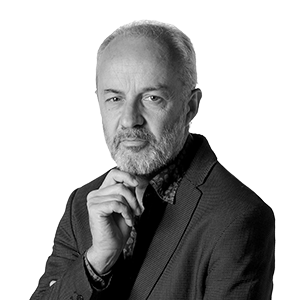Theodor Kallifatides: "Perhaps we can learn something from our grandchildren."
The Greek-Swedish writer talks at the CCCB with Monika Zgustova


BarcelonaTheodor Kallifatides (Molaoi, Peloponnese, 1938) no longer has any friends or family in Greece. "There's no point in going back, everyone's dead: my parents, my brother, my friends... I have nothing. If I lose people, I lose the country. If I go there now, I'm just another tourist. Sweden is where I have the people I love. My country is my family." He says it simply, as he writes. This is how the Greek-Swedish author explained himself on this rainy Monday at the CCCB, in front of more than three hundred people.
He did so, moreover, by rehearsing a few phrases in Spanish, a language he has begun to teach himself due to his book success. He hasn't yet gotten around to Catalan. Kallifatides is widely read in Sweden—he has written all his work in Swedish—and here. More so than in Greece. He has no other country with as many readers. Swedish is his adopted language and his literary language. Greek is everywhere; it's a seminal European language: "You find it in the stars when you look at the sky, in the sea, in medicine, in philosophy, in myths." He also speaks English and French, and is fluent in Italian and German. He is the quintessential European, a symbol of the unity and plurality of the Old Continent, of the tolerance that is now in question.
In conversation with Monika Zgustova, also a polyglot and simultaneously Catalan, Spanish, and Czech, Kallifatides declares himself "terrified" by the direction Europe and the world are taking. "Trump sees immigration as a problem and wants to send people away. In Germany, Sweden, France, in Europe, we need immigrants because we don't have enough children. But instead of trying to make those who come from outside forget they're foreigners, we force them to be so. I will never accept this. No, no, and no. And I will never be a foreigner in the country where I live; I will always learn its language." He says this with a smile. With him, anything seems possible: "Was it difficult for me to learn Swedish? The problem isn't the language, but having ideas, things to say. A language is always an intellectual adventure; it's like entering a river. And the ideas came to me, like little birds pecking at my head."
The latest idea that has been running through his head goes like this: one day, his 13-year-old granddaughter came with two friends to ask him to convert the attic of a chicken coop into a space for them. "What will you do? There's no internet, it's dark, it has no windows." "We'll just be there, we'll look at each other and laugh," they said. "Nothing else? Just laugh?" "Does that seem like too little to you?" was the unbeatable response. Kallifatides returned to the office, made himself a Kierkegaard-style coffee, with a little coffee and a lot of sugar, and thought that the philosopher would have liked to write an essay titled The attic of laughter. "Perhaps we can learn something from our grandchildren," certainly more than from the "giant babies" who rule us.
